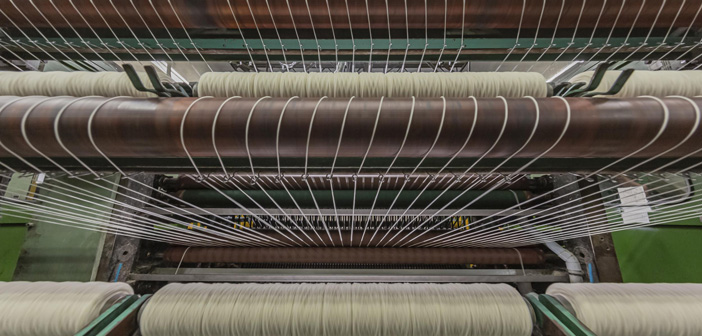As part of a commitment to increasing the integration of recycled materials into its vehicles, in 2015 Groupe Renault initiated a project called “àfiler” (“to thread”) alongside Filatures du Parc, a spinning mill in the Tarn region of France, and Adient Fabrics, an automotive seat supplier in Ariège, France, to design a unique textile product made exclusively from recycled materials.
Thanks to traditional know-how of carded yarn and co-developed innovations, this textile product, which is made from safety belts, textile scrap from the automotive industry and polyester fibers from the recycling of plastic bottles (PET), now covers the interior of the new Renault Zoe EV.
The fabric is used for the manufacture of seat covers, dashboard coverings, gear lever brackets and door fittings, and is said to meet Renault’s high requirements for comfort, cleaning, UV resistance and durability. It covers a total area of 8m².
Once cut and shredded, the recycled belts and textile fibers are mixed with polyester fibers from plastic bottles that guarantee the cohesion of the fibers, before undergoing a series of carding operations. The traditional carding technique makes it possible to obtain a new weaving yarn thanks to a system of drums lined with very fine steel tips rotating at high speed. This process makes it possible, without chemical or thermal transformation, to disentangle and then divide, to stretch, then align parallel and finally to twist the fibers cleared of impurities.
Renault claims that the supply and short loop manufacturing of this 100% recycled carded yarn reduces associated CO2 emissions by more than 60% compared to the previous Zoe fabric from a standard manufacturing process. The yarn has been patented jointly by Groupe Renault and Filatures du Parc.
Jean-Philippe Hermine, director of Environmental Strategy and Planning for Groupe Renault, said: “With the support of our partners, we are demonstrating that it is possible to implement circular and competitive development models focused on resources, while acquiring a valuable competitive advantage at a time when the availability and cost of raw materials are becoming a real strategic issue. This approach contributes to the Group’s commitment to reduce the environmental impacts of each vehicle throughout its lifecycle and to reduce its global carbon footprint by 25% in 2022 compared to 2010”.



